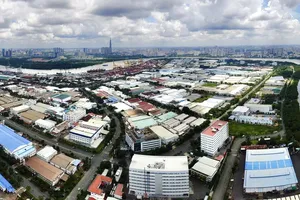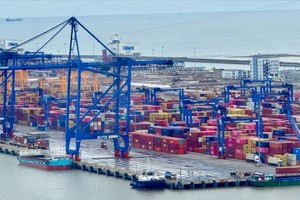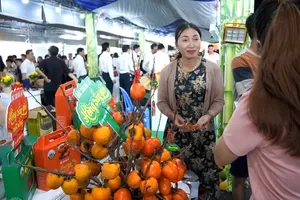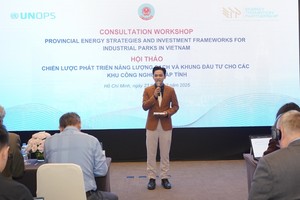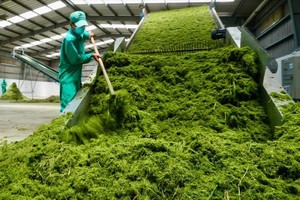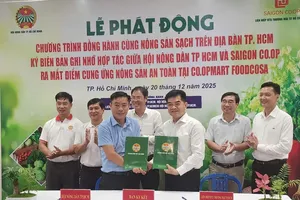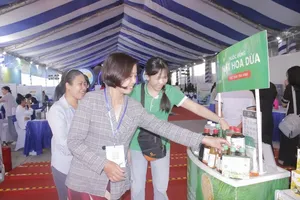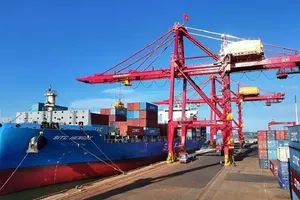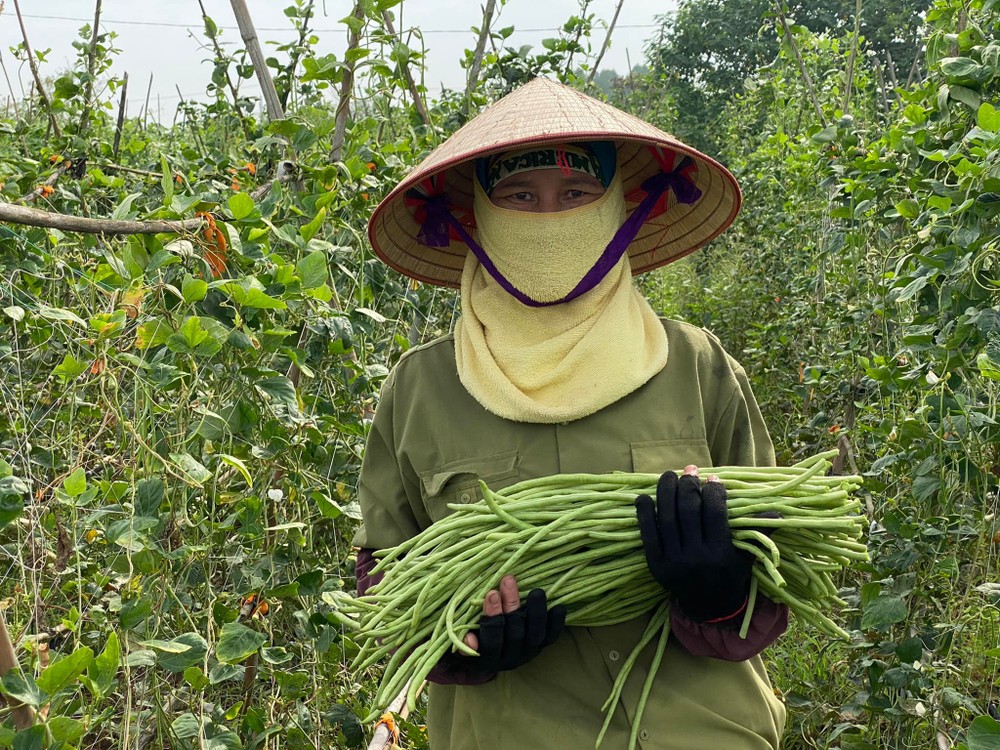
Although the world economy in general and the Vietnam economy in particular have faced many difficulties in recent years and consumers have tightened their spending. Certified organic products are generally more expensive than their conventional counterparts, the demand for organic agricultural products is still very high. However, several deceitful traders have been mixing organic vegetables and fruits with non-organic ones to sell at high prices; plus, there have been no specific and clear criteria to confirm the quality of organic produce.
Owner Nguyen Thu Ha of a farm in Cao Phong District in Hoa Binh Province shared that consumers are doubtful about organic agricultural products because they can not distinguish between what are really organic fruits and vegetables and what are inorganic products. Resident Tran Thi Thu Huong in Thu Duc City has used organic agricultural produce for many years but admitted that she is not fully sure to buy actually organic produce.
Many other consumers also believe that the recent uncovering of non-transparent food products on social networks is necessary so that consumers can avoid these dishonest traders. Nevertheless, after the discovery of such incidents, many consumers no longer believe in products that are introduced and advertised as organic and safe. Farm owner Nguyen Thu Ha believes that there are farming establishments that can be truly organic at first, but later, they secretly use fertilizers, chemicals, and herbicides killing weeds and pests to increase productivity for more profits.
Dr. Nguyen Duc Chinh, owner of GenXanh farm in Hanoi’s Phuc Tho District shared that there are currently two types of organic certification in Vietnam. One is provided by Vietnamese centers and the other is provided by foreign organizations. Although they are all organizations authorized by the state to evaluate, too many organizations and centers have been licensed to certify organic products and not all of them work honestly.
As a consequence, both manufacturers and consumers do not know which unit or organization is reputable.
According to many economic experts, the current concept of organic agricultural production is not defined correctly, causing a loss of consumer confidence. Opening up the domestic organic agriculture market requires transparency. Compared with the current situation in the world and in the country, Vietnam's organic agriculture market still has a lot of room to exploit. The key issue is to promote connectivity as well as product consumption, and strengthen communication so that consumers understand the value of organic agriculture, not only for their health but also their responsibility for environmental protection in agriculture.
In particular, at this time when prices of agricultural materials are rising for many reasons, Minister of Agriculture and Rural Development Le Minh Hoan also said that farmers should be encouraged to switch from chemical fertilizers to organic fertilizers because it is a long-term path for the country’s agriculture.
According to the Plant Protection Department under the Ministry of Agriculture and Rural Development, currently, some localities have established assessment offices under the Plant Protection Department or Quality Management Department to support certification for growers doing organic farming at low cost or possibly no cost. However, not all localities can do this.
Director of the Department of Crop Production Nguyen Nhu Cuong said that since 2020, the Prime Minister has approved the Organic Agriculture Development Project from 2020 to 2030.
Almost 63/63 provinces and cities have so far been implementing this project, and many organic agriculture models have proved effective. The State also has a legal framework to manage organic agriculture by promulgating regulations and supervision standards. However, it takes time for these regulations to come into effect.
According to the Department of Agriculture and Rural Development in Lam Dong province, although organic agriculture has achieved positive outcomes, consumers currently do not have absolute trust in products with organic certification because they find it hard to distinguish between non-organic and organically grown produce. In addition, input costs in production are still high, while productivity has decreased by an average of over 30 percent, so organic farmers do not have high profits and need support from the government in the beginning.
A representative of the Department of Crop Production and Plant Protection in Kon Tum Province also said that due to the province's small budget, it has not financially supported organic agricultural production in the province. Businesses, organizations and individuals in the area have difficulty meeting the criteria for recognition of organic agricultural products. The agricultural area certified for organic agriculture in the locality is still small and there has been no link chain in organic production.
Director Nguyen Hoai Duong of the Department of Agriculture and Rural Development of Dak Lak Province said that the province's agricultural sector is building and developing the market and distribution system for key organic agricultural products such as coffee, durian, cocoa, and vegetables. Localities recommend that the Government have programs and solutions to support people and businesses.
According to Deputy Director Nguyen Van Quan of the Department of Agriculture and Rural Development of Ca Mau Province, to develop organic agricultural production, the Ministry of Agriculture and Rural Development needs to call for and support businesses that pour money in organic production and link production areas to quickly develop in scale and product quality.
Moreover, the Ministry should coordinate with localities to strengthen propaganda and dissemination to raise awareness among producers and consumers about the benefits of organic agricultural products.
In addition, the Ministry of Agriculture and Rural Development should promote the connection between consumption and promotion channels through programs to support and promote the consumption of organic agricultural products throughout the country. Every year, the Ministry should allocate funds to maintain and encourage the development of organic production in provinces, especially for key national products.
